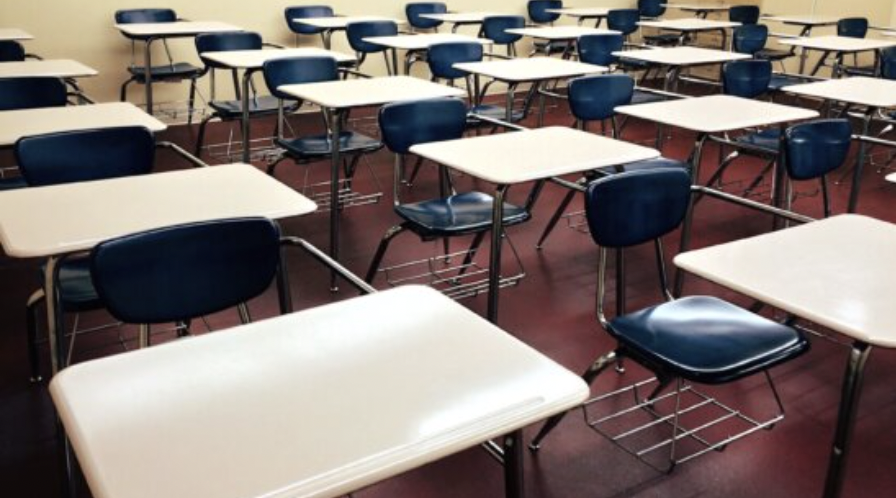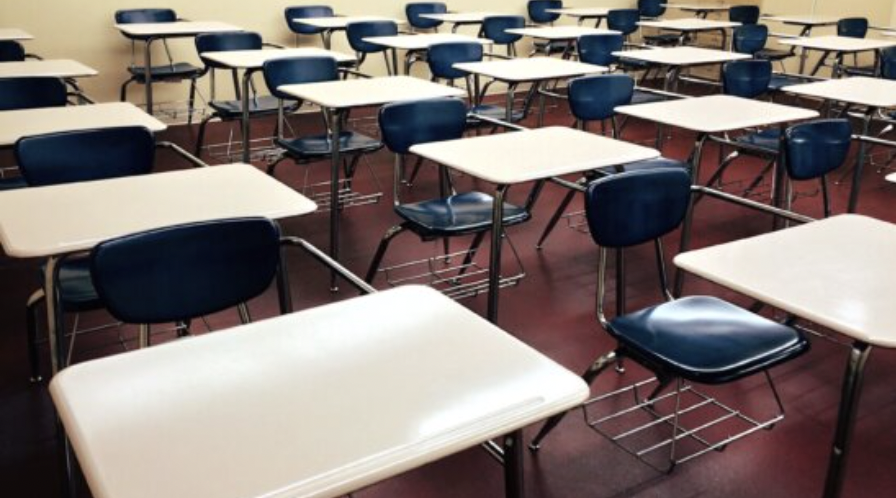It has been three long years of never ending Zoom calls and mundane conversations with black screens, courtesy of the dreaded breakout rooms. For many college students, this transition to in-person classes may be their first real experience on campus. There is so much to look forward to—a more engaging learning experience, face to face interaction or even just getting to sit in an actual classroom. On the other hand, this switch to in-person instruction brings anxiety and uncertainty along with it.
In an email sent to the entire campus community this month, President Sakaki assured students that masks will still be required indoors, and yet the health checks that are supposed to be completed daily are rarely checked by administrators.
When students were registering for spring classes, there was no indication of how rampant the Omicron variant would become, so many may have picked courses that were in-person because of declining cases of COVID-19. Unfortunately, things took a turn for the worse and attendance for in-person classes remains a requirement.
In an interview with the STAR, Nicole Valiente, a first year at SSU, spoke of their concerns about returning to school: “It feels a bit reckless that we are returning back to in person classes considering how often we have been getting emails from Sonoma State notifying us of another COVID-19 case on campus. For me, classes in person means I have less time, less energy, more anxiety, and more stress.”
There is this push to go back to normalcy, but it feels as though mental health isn’t really being taken into account. There is no longer the ability to turn off a camera to step away and take a breather, instead everyone is being forced to suffer in silence. The rather abrupt transition has only made for preventable overwhelming stress and anxiety.
The Kaiser Family Foundation reported that the percentage of adults with anxiety disorders and/or depressive disorders has increased from 11% in Jan. of 2019 to 41.1% in Jan. of 2021. It is understandable that people are eager to get back to life before the pandemic, but it is also important to acknowledge not only the physical issues that COVID-19 has caused, but the mental health issues as well.
There are also many concerns surrounding the lengths that Sonoma State is willing. or not willing, to go to in order to insure the safety of their students. According to the SSU COVID-19 Faculty FAQ webpage, “…there are no social distancing requirements indoors and faculty is responsible for cleaning their own hardware in each classroom.”
One can only hope that students and faculty continue to put effort into making campus life safe, as the university’s administration seems to be playing no part in regulating such things.
Vanessa Díaz, a first year at Sonoma State, described how she has been anxious about getting COVID-19: “The transition from online to in person has been very tiring emotionally, mentally, and physically. It has been nice to see friends I have made in classes but I have also been anxious about contracting COVID-19 and spreading it to my family. I am glad, however, that Sonoma State has continued to require masks indoors.”
This is an exciting new time at Sonoma State, but one should proceed with caution. There are still safety protocols to be followed and mental health should be at the forefront of concerns during this transition to in-person classes.
The Counseling and Psychological Services (CAPS) building is located behind Salazar Hall in building 17A. You can reach CAPS through the email address [email protected] or at the phone number (707)664-2153.





![[Both photos courtesy of sonoma.edu]
Ming-Ting Mike Lee stepped in as the new SSU president following Sakakis resignation in July 2022](https://sonomastatestar.com/wp-content/uploads/2024/04/CC4520AB-22A7-41B2-9F6F-2A2D5F76A28C-1200x1200.jpeg)



























